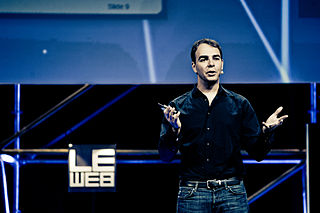A Quote by Susan Wojcicki
If everybody has to take biology and chemistry, they can take computer science. Computer science is a more useful skill right now than a lot of other things that people are learning at school.
Related Quotes
The term "informatics" was first defined by Saul Gorn of University of Pennsylvania in 1983 (Gorn, 1983) as computer science plus information science used in conjunction with the name of a discipline such as business administration or biology. It denotes an application of computer science and information science to the management and processing of data, information and knowledge in the named discipline.
The attribution of intelligence to machines, crowds of fragments, or other nerd deities obscures more than it illuminates. When people are told that a computer is intelligent, they become prone to changing themselves in order to make the computer appear to work better, instead of demanding that the computer be changed to become more useful.
Learn computer science. It's extraordinarily helpful. I like recommending learning economics as well so they think in terms of business, they have rational frameworks for looking at the world, but yeah, computer science is an amazing way to get into, even if you want to be CEO, having a tech background is helpful.
If somebody is working on a new medicine, computer science helps us model those things. We have a whole group here in Seattle called the Institute for Disease Modelling that is a mix of computer science and math-type people, and the progress we're making in polio or plans for malaria or really driven by their deep insights.
My high school, the Illinois Mathematics and Science Academy, showed me that anything is possible and that you're never too young to think big. At 15, I worked as a computer programmer at the Fermi National Accelerator Laboratory, or Fermilab. After graduating, I attended Stanford for a degree in economics and computer science.
I think that it's extraordinarily important that we in computer science keep fun in computing. When it started out, it was an awful lot of fun. Of course, the paying customers got shafted every now and then, and after a while we began to take their complaints seriously. We began to feel as if we really were responsible for the successful, error-free perfect use of these machines. I don't think we are. I think we're responsible for stretching them, setting them off in new directions, and keeping fun in the house. I hope the field of computer science never loses its sense of fun.
































